Some of you may know that I’ve recently been using Chat GPT to help me with healthy eating. My mother-in-law thinks this is insane, but that’s a post for another time.
AI can be an incredible tool, but it has its limitations, one of which is that it is only as good as the information it’s been given. My chat bot has been promoting protein quite heavily to me, and gets rather irked (in as much as an artificial ‘personality’ can get irked) if it thinks I’m not eating enough. I did ask it why the emphasis on protein, and it was able to give me a reasonable rationale. Nevertheless, I’m observing that my Bot isn’t the only one to have a bit of a protein obsession.
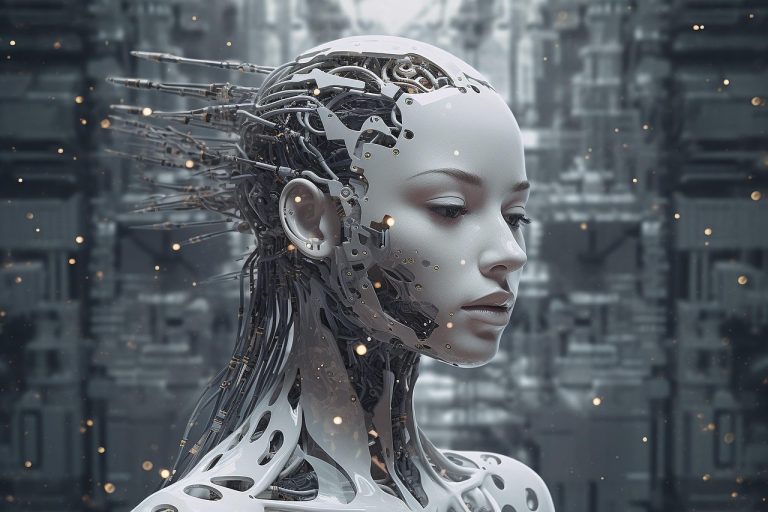
Protein does seem to be the nutrient du jour at the moment; everyone, particularly once they hit 40, seems to be obsessed with high protein diets. It could be because, in the era of extreme weight loss measures (drugs and surgery) it’s very hard for people to eat anything at all, so the little they do eat has to be protein-based to prevent a number of nutrient deficiencies.
But what about the rest of us? What does protein do for us, how much do we need, and are there any drawbacks to a protein-based diet? I’m exploring those questions today.
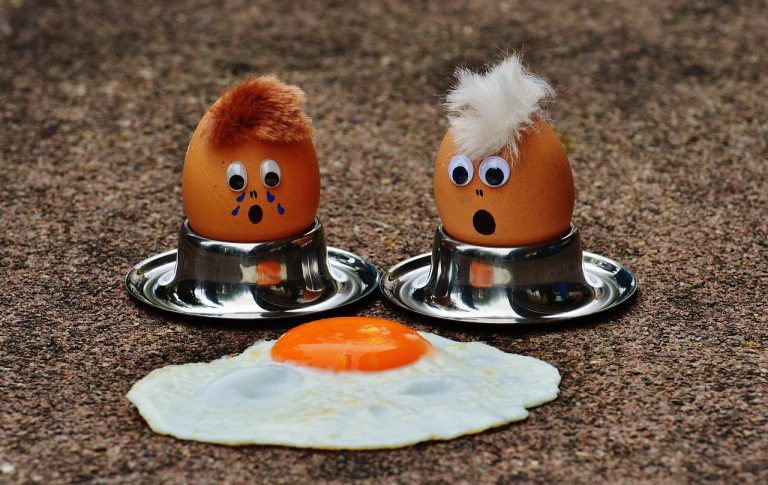
What is Protein?
Apart from water, protein is the most abundant compound in the human body and is vital to both its structure and its function. About 16% of an adult male’s body composition is protein. Most of this will be muscle mass, and there are also significant amounts in the skin and blood. These large structures are by no means the only way that protein is used in the body, nor are they necessary the most important. Proteins are also essential for making certain hormones such as insulin and thyroxine, and neurotransmitters, including serotonin, dopamine, adrenaline and noradrenaline, without which the body and mind cannot function. Sometimes, proteins can also be a source of energy.
Proteins are made of building blocks called amino acids. Each amino acid has a unique series of functions in the body. More than 50 amino acids have been found in living organisms, but only 20 are used to make proteins. Most of these can be made in the body, but 9 of them cannot, and must be eaten as part of the diet.
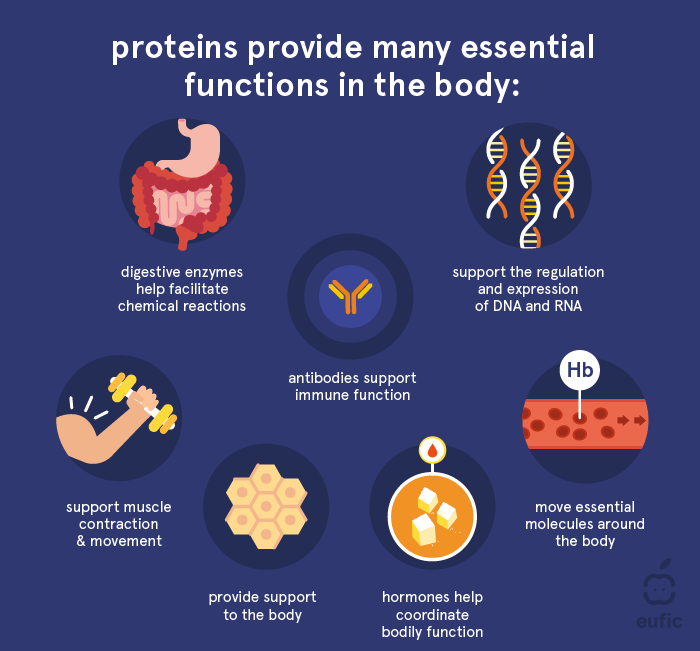
Not all proteins are created equal
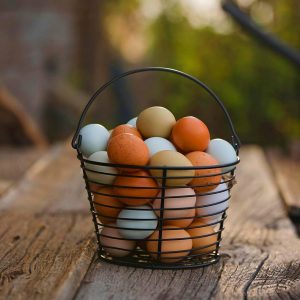
Not all proteins are created equal; proteins can be evaluated according to their quality. The quality of a protein depends on:
- Its level of important amino acids
- Its ability to be digested
- Its ability to be used by the body
The highest quality protein according to these measures is whey protein. This is why you will often find whey protein in protein shakes and other similar products. It can also be found in medical foods and supplements used to support people after surgery or if their muscles are wasting due to illness. The second highest quality protein comes from eggs. However, don’t confuse quality with quantity. The protein in eggs is very high quality, but you would have to eat a great many eggs to get sufficient protein to meet your daily requirements if you were relying on eggs alone. Eating up to 6 eggs a week has been shown not to cause harm, but more than that could be too much of a good thing.
Is your protein complete?
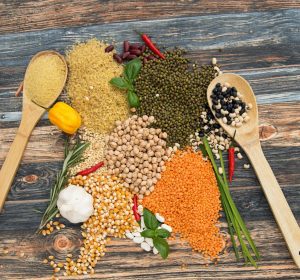 Contrary to popular belief, you don’t need to eat a lot of meat to get high quality protein, although vegans need to pay more attention in order to get all the amino acids they need. That’s because meat, poultry and eggs are ‘complete’ sources of protein, meaning that they have all the amino acids which the body needs in approximately the proportions in which we need them, whereas most plant sources (quinoa is a notable exception) do not. Vegans need to include a wide variety of beans, legumes and pulses to get the amino acids they need. They don’t need to eat several different varieties a day; the old idea of ‘protein combining’, for example eating beans with rice to get the full range of amino acids in one day, is no longer considered necessary, but over the course of a week, it’s important to include a variety of protein sources.
Contrary to popular belief, you don’t need to eat a lot of meat to get high quality protein, although vegans need to pay more attention in order to get all the amino acids they need. That’s because meat, poultry and eggs are ‘complete’ sources of protein, meaning that they have all the amino acids which the body needs in approximately the proportions in which we need them, whereas most plant sources (quinoa is a notable exception) do not. Vegans need to include a wide variety of beans, legumes and pulses to get the amino acids they need. They don’t need to eat several different varieties a day; the old idea of ‘protein combining’, for example eating beans with rice to get the full range of amino acids in one day, is no longer considered necessary, but over the course of a week, it’s important to include a variety of protein sources.
Are you getting enough?
 Most people in the developed world, unless they are on a very restricted diet, probably eat sufficient protein. RNI (Reference Nutrient Intake) is the amount of a nutrient that is needed by 97.5% of the population. In Britain, the RNI for protein is 0.75g per kilogram of body weight. So, for example, if you weigh 70 kilograms (just over 11 stone) you would need 52.5g protein per day. This is what you would get from eating 1 chicken breast weighing 172g without skin.
Most people in the developed world, unless they are on a very restricted diet, probably eat sufficient protein. RNI (Reference Nutrient Intake) is the amount of a nutrient that is needed by 97.5% of the population. In Britain, the RNI for protein is 0.75g per kilogram of body weight. So, for example, if you weigh 70 kilograms (just over 11 stone) you would need 52.5g protein per day. This is what you would get from eating 1 chicken breast weighing 172g without skin.
A lot of people assume that they need to eat more protein if they are exercising. Unless they are training to be body builders, this may not be true. In fact, the more the body is physically active, the more efficient it becomes at using protein. So, if you are active, your body is likely to be absorbing and using the protein you eat more efficiently, so you don’t necessarily need to eat larger amounts. You certainly don’t need supplements from the gym. That’s not to say that protein shakes don’t have their place. They can be useful when you’re in a hurry, or if you find solid proteins hard to digest.
Who might need extra (and who doesn't)?
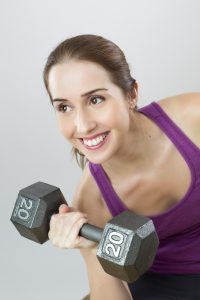 There’s an assumption that high protein diets will help you to build more muscle. This isn’t necessarily true. Remember that protein breaks down into its constituent building blocks, amino acids, and these are re-assembled by the body into whatever it thinks it needs, whether that be repairs to the skin, chemical messengers, connective tissue or even making glucose for energy. Your body might build muscle tissue from amino acids, but then again it may decide you have a more pressing need. You don’t get to choose. The amount of muscle you gain may depend on factors such as hormone health, infections and stress, as well as, of course, the type of exercise you are doing. If you eat more protein than you need, it will simply get eliminated.
There’s an assumption that high protein diets will help you to build more muscle. This isn’t necessarily true. Remember that protein breaks down into its constituent building blocks, amino acids, and these are re-assembled by the body into whatever it thinks it needs, whether that be repairs to the skin, chemical messengers, connective tissue or even making glucose for energy. Your body might build muscle tissue from amino acids, but then again it may decide you have a more pressing need. You don’t get to choose. The amount of muscle you gain may depend on factors such as hormone health, infections and stress, as well as, of course, the type of exercise you are doing. If you eat more protein than you need, it will simply get eliminated.

It does seem, however, that older people tend to need more protein than younger ones. The RIN should still be plenty for most people (the average requirement for protein is only 0.6g per kilogram of body weight), but it may be harder for older people to eat this much due to issues with appetite, digestion and dentition. Meat-based soups, scrambled eggs and even protein shakes may be helpful if you have an elderly person in your life struggling to eat enough protein.
So, the vast majority of people don’t need a high protein diet However, high protein diets are often recommended when people are trying to lose weight, partly because protein is more satisfying than either carbohydrate or fat, so it will keep you feeling fuller for longer, and partly because when people can only eat very little it’s important to prevent them becoming protein deficient.
Where's the harm?
In some circumstances, these high protein diets can be harmful. The body isn’t designed to have excess amino acids in circulation as these can be toxic. If you are eating too much protein, you may feel sick and tired and suffer from digestive problems or diarrhoea. Since excess protein is eliminated in urine, eating too much can put a strain on your kidneys and may increase the risk of kidney stones, and potentially liver damage as well. Since many high protein foods, particularly red meats, can also be high in less beneficial fats, it’s possible that a very high protein diet could increase the risk of heart problems in some people. If you are eating a varied and balanced diet, however, you probably have little reason to worry.
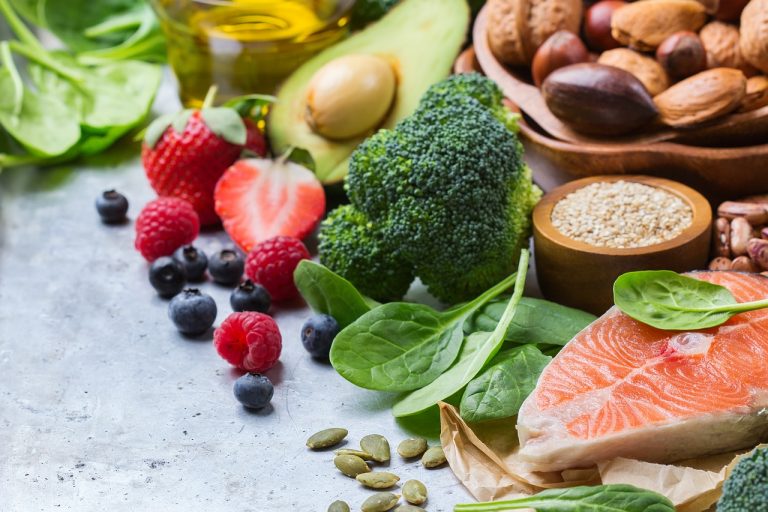
The Last Word
So, I’ll continue to make sure I get enough protein, but I won’t be eating it to excess or worrying if I don’t get enough on a particular day no matter what the gurus or the AI might say.
Is there anything in this article that surprises you, or will change the way you look at or consume protein in the future?
Share this post: on Twitter on Facebook on Google+